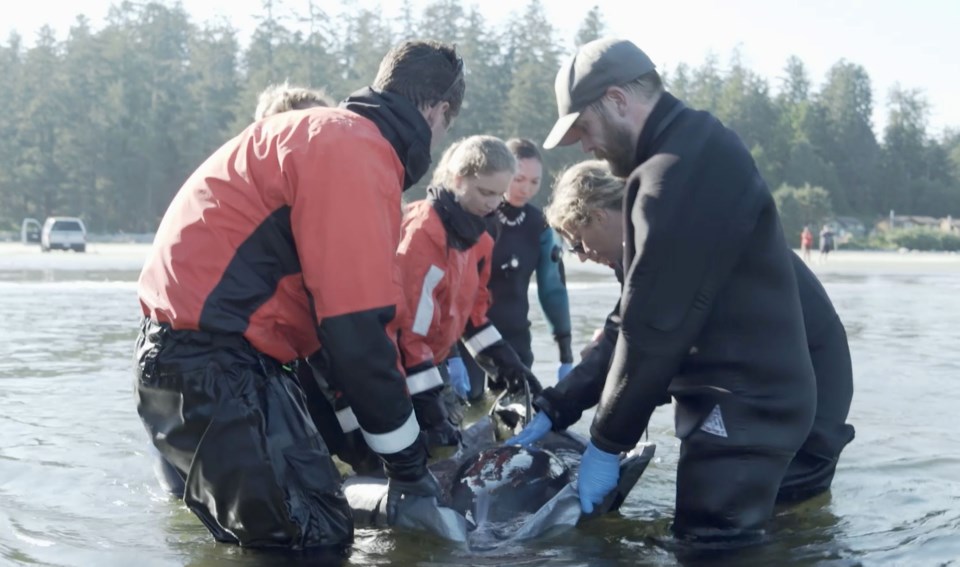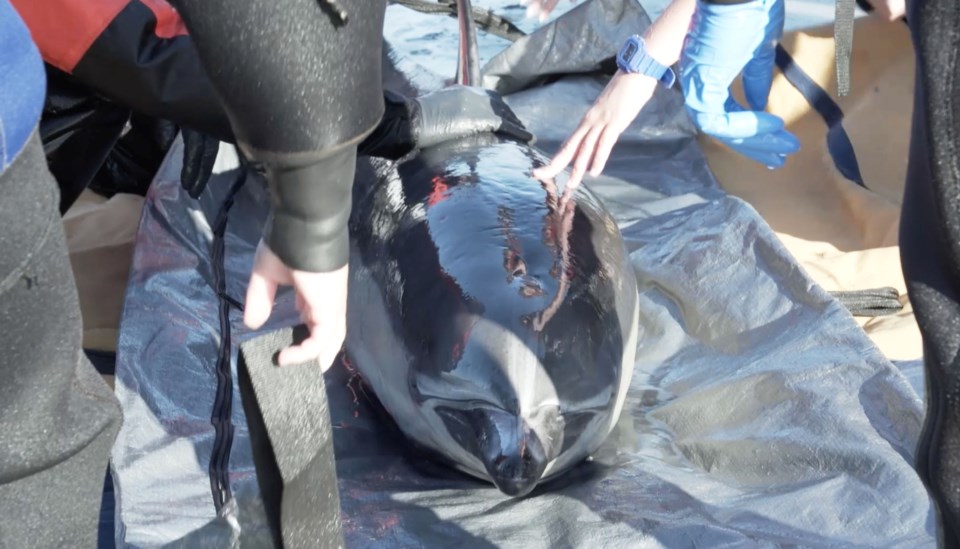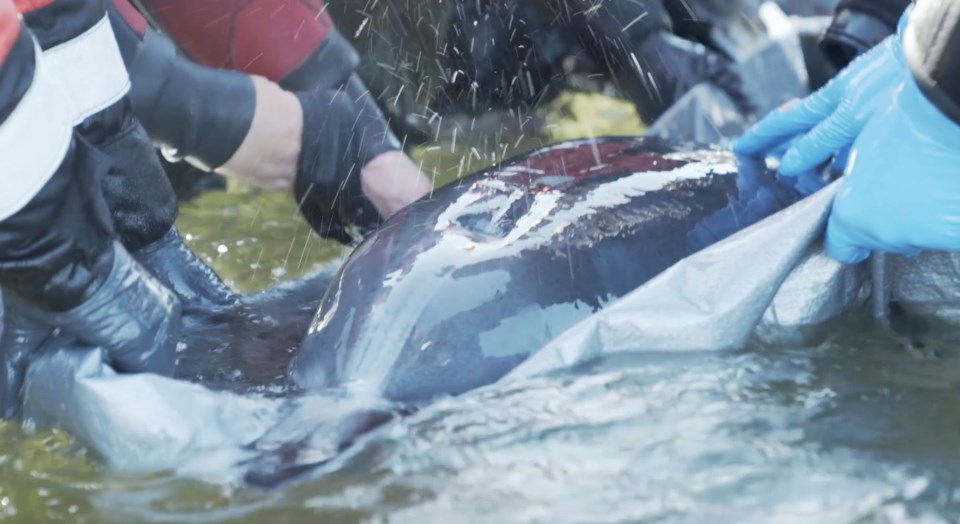A tropical dolphin that found itself a long way from home stranded at Pacific Rim National Park has sadly died, despite a heroic all day effort to save the mammal.
The stranding was labelled unusual by scientists as the dolphin, believed to be a long-beaked common dolphin, is rarely seen in waters off B.C.
Teams from Vancouver Aquarium Marine Mammal Rescue Centre, Ocean Wise Initiative and Parks Canada rallied together to rescue the male dolphin, after it became stranded on a sandy shoreline in the national park on Thursday morning.
At first, Parks employees tried to refloat the adult male dolphin so it could swim away, but it didn’t work. They held the dolphin in shallow water until the Rescue Centre team could arrive to help.

“The number of people who worked together in an effort to save this animal was fantastic,” said Lindsaye Akhurst, manager of the Rescue Centre.
With permission from Fisheries and Oceans Canada, and speedy assistance from Fort Langley Air and BC Ferries, the first members of the Marine Mammal Rescue team were on the beach within a few hours of getting the call.
Unfortunately, the dolphin was in a critical condition, and shortly after beginning the transport back to the Rescue Centre in Vancouver, it stopped breathing.
There will be a necropsy to determine the animal’s cause of death.

The stranding was unusual because this type of dolphin typically lives in tropical and sub-tropical regions, and has a range that includes parts of western and southern Africa, much of western South America, central California to central Mexico, coastal Peru, areas around Japan, Korea and Taiwan.
They have only rarely been sighted in waters off B.C. and Washington State, which is at the very northern edge of their range.
Dr. Andrew Trites, from the University of British Columbia's Marine Mammal Research Unit, said species will be moving further north as ocean temperatures rise.
“What was once considered very rare could well become quite common,” Dr. Trites said.
“In science and government, we’ll have to understand that the status quo is a thing of the past and adapt to seeing new species.”
If you see a marine mammal that you believe is in distress, do not approach it and keep pets away.
Please call the Fisheries and Oceans Hotline at 1-800-465-4336, or Vancouver Aquarium’s Marine Mammal Rescue Centre at 604.258.SEAL (7325) for immediate assistance.



